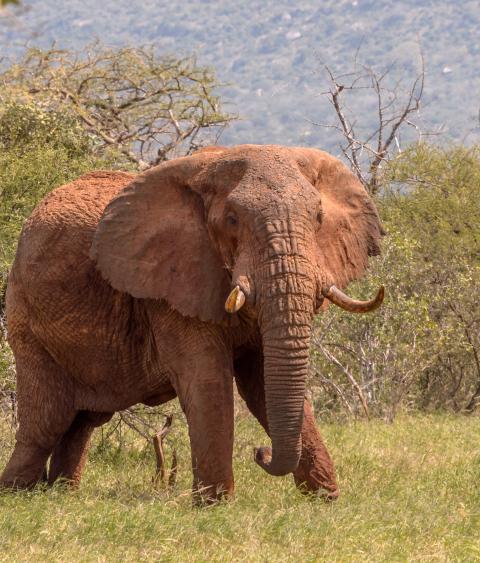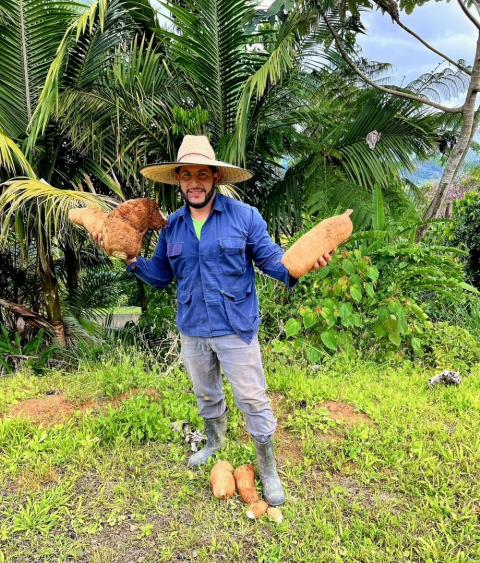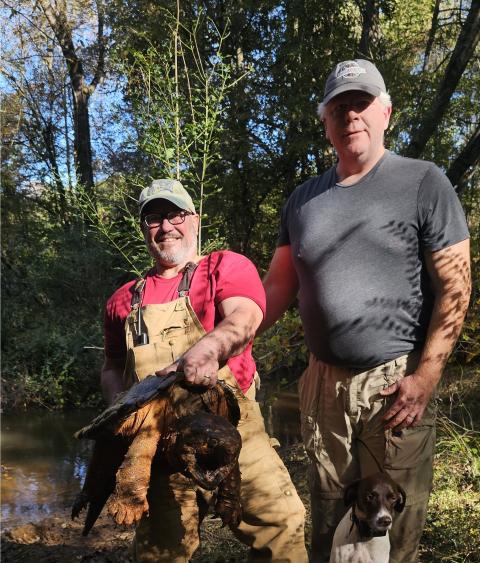Breadcrumb
- Home
- Outdoor News Bulletin
- July 2011
- 77th North American Special Sessions Set
Outdoor News Bulletin
77th North American Special Sessions Set
The Program Committee for the 77th North American Wildlife and Natural Resources Conference has announced the four Special Sessions slated to follow the event's Plenary Session on Wednesday, March 14 2012. The Conference, hosted by the?Wildlife Management Institute (WMI),?will be held at the Hilton Atlanta in Atlanta, Georgia, March 12-17 2012.
Program Committee members indicated that the session topics selected for the 77th North American will be particularly relevant to the imminent and unavoidable challenges facing natural resource conservation in the near and distant future.
"Next years' Special Sessions will highlight some of the landmark achievements in North American conservation but also will address many of the difficult issues confronting natural resource managers in the coming years," said WMI's Matt Dunfee, Program Committee Chairman.
Persons interested in presenting at one of the below Special Sessions are welcome to contact the appropriate chair or co-chairs, and should do so as soon as possible.
The Wildlife and Sport Fish Restoration Program 75th Anniversary: The Wildlife Restoration Program
Cochairs:
Bob Duncan, Virginia Department of Game & Inland Fisheries
Cynthia Dohner, US Fish and Wildlife Service
On September 2, 1937, President Franklin D. Roosevelt signed the Federal Aid in Wildlife Restoration Act (now the Pittman-Robertson Wildlife Restoration Act.) This Act fostered partnerships between federal and state fish and wildlife agencies, the sporting arms industry, conservation groups, and sportsmen to benefit wildlife. Perhaps more than any other single piece of legislation, the Act has been vital to the implementation of the North American Model of Wildlife Conservation.
In 1950, the Federal Aid in Sport Fish Restoration Act (now the Dingell-Johnson Sport Fish Restoration Act) passed. Together, the Wildlife and Sport Fish Restoration program (WSFR) has contributed more than $12 billion to fish and wildlife conservation in the U.S.; more than any other single conservation effort. Now, in this special session, we proudly observe 75 years of the WSFR program and its landmark accomplishments:
- A 75-year partnership that benefits fish and wildlife conservation and provides Americans with access to the outdoors through a self-imposed investment paid by manufacturers and users of gear bought by anglers, boaters, hunters, and shooters and managed by federal and state fish and wildlife agencies.
- For 75 years, WSFR has provided over $12 billion for fish and wildlife management, supplied jobs for many Americans, and benefitted local economies through boating, fishing, hunting, and shooting activities.
- WSFR has given Americans unparalleled access and opportunity to enjoy fish, wildlife, and the outdoors for the past 75 years. With your support, WSFR will continue to conserve habitat for fish and wildlife as well as recreational opportunities for anglers, boaters, hunters, and shooters for the future
This session is an opportunity for the conservation community to share our successes, strengthen our partnerships, and consider the future of the Wildlife Restoration program. While white-tailed deer and wild turkey have been brought back from the brink of extinction, there are many more challenges we face in the future. These challenges are not simply wildlife management issues; they will require committed users, supportive industry partners, and strong partnerships between federal and state fish and wildlife agencies and NGOs.
Speakers in this session will include state, federal, and industry leaders who will share some stories of success and their ideas for strengthening partnerships. This session will present diverse perspectives on the future challenges to the Wildlife Restoration program and expert insights into strategies needed to address those challenges.
Integrating Human Dimensions Knowledge and Wildlife Health Management
Cochairs:
Dr. Shawn Riley, Michigan State University
Shauna Hanisch, Michigan State University
Pathogens are emerging that threaten human and animal health (e.g., avian influenza virus, West Nile virus) while others, such as chronic wasting disease and white nose syndrome, are spreading geographically and threaten the health of important wildlife populations. Although many infectious diseases, such as rabies and plague, have affected humans and animals for hundreds of years, they continue to cause health concerns. These diseases place heavy burdens on the financial and human resources of fish and wildlife agencies throughout North America. Unfortunately, when humans view wildlife as vectors of disease rather than a valued natural resource, public support for conservation is often diminished.
Improved integration of biological and human dimensions knowledge in wildlife health management is essential to wildlife management agencies if they are to develop effective and socially robust disease management strategies. Given the increase in disease risks and the uncertainty surrounding public reaction to management of these risks, wildlife health management is more than a purely biological or epidemiological issue. Insights from human dimensions research are critical to achieving the goals of the numerous health and disease-oriented management initiatives emerging among state, federal and non-governmental organizations.
This Special Session will highlight research targeted at strengthening fish and wildlife health-related policies and their implementation. Specifically, presenters will provide information and insights on strategies that will assist decision makers in developing successful communication efforts in order to gain public support for management initiatives aimed at promoting wildlife health and combating disease.
Adapting Conservation to Demographic and Social Changes in the 21st Century
Cochairs:
Tara Teel, Colorado State University
Chris Smith, Wildlife Management Institute
North America's human population will undergo profound changes over the next 50 years. Although the "baby boom" will fade into history, the total number of people in Canada, the United States and Mexico will increase from about 460 million to as many as three-quarters of a billion by 2060. Future immigration and differential birth rates among ethnic groups will result in no ethnicity having majority status in the United States. Regional shifts and the concentration of people in urban centers will continue, while social and economic changes of equal magnitude occur.
Interestingly, climate change and North America's future demographic change have a number of parallels: both take place across spatial and temporal scales that can be difficult to grasp, both are driven by forces that are beyond the control of any wildlife or natural resource agency or conservation NGO, and both will have profound impacts on species and ecosystems. The North American conservation community is responding to climate change by focusing science on this phenomenon and updating wildlife conservation plans to adapt to a changing climate. A similar response is needed with respect to human demographic and social change.
This special session will explore questions such as: How will the size and distribution of the human population of North America change over the next 50 years? What major social and cultural shifts will occur? What are the implications for wildlife-related values and uses? What are the implications for land and water use, energy development, etc. And, most importantly, what must agencies and NGO's do to remain relevant and effective in delivering conservation in the face of these changes?
Presenters will include experts in the fields of demographics, human dimensions, and conservation science, along with visionary leaders from agency and NGO perspectives. Attendees will gain an understanding of the future human population in North America and ideas about how the conservation community can best position itself to retain influence as the population changes.
Making Conservation Funding Competitive in an Era of Fiscal Constraint
Cochairs:
Scott Yaich, Ducks Unlimited
Bob Ziehmer, Missouri Department of Conservation
Successful conservation management depends on well-funded state and federal fish and wildlife agencies. The United States economic crisis of the early 21st Century has caused the American people and elected officials to rethink the role of government and to re-prioritize the use of scarce public funds that have traditionally funded conservation programs.
Unfortunately, many Americans have no knowledge of the level of funding required to maintain effective conservation programs, and they are often unaware of the crucial role that government scientists and managers play to ensure the sustainability of fish and wildlife resources.
Additionally, and of particular concern to state fish and wildlife agencies is the precipitous decline in numbers of hunters who currently fund wildlife management through license purchases and payment of excise taxes on firearms and ammunition. This national trend will likely result in fewer financial resources coming from sportsmen in the future even as conservation challenges expand due to human population growth and accelerating habitat loss.
The recent congressional debate over the FY 2011 federal budget revealed a lack of support for historical levels of funding for federal programs that support habitat conservation and wildlife management practices. Fortunately, the wildlife community rallied to save at least a reduced level of funding for important programs such as the Land and Water Conservation Fund, North American Wetlands Conservation Act, State Wildlife Grants, and some critical Farm Bill conservation programs. However, relentless pressure to reduce or curtail these and other programs is likely to occur for FY 2012 and beyond.
This Special Session will explore the current and probable future political and fiscal challenges to conservation funding and explore realistic ways to ensure that fish and wildlife management agencies have the political and fiscal backing necessary to meet the challenges of the coming decade(s). Special emphasis will be placed on ways to secure additional support from conservation-related businesses as well as government sources. Session speakers will include economists, entrepreneurs, public policy experts and others working on innovative and practical funding initiatives.



